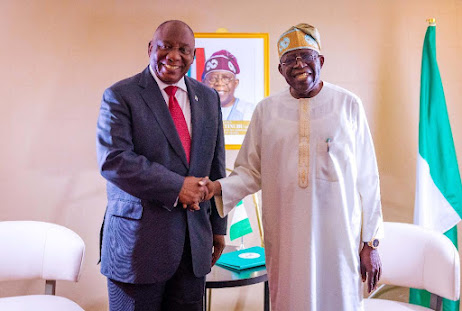By Ikechukwu Amaechi
In his 1961 book, The Theatre of the Absurd, Martin Julius Esslin, a Hungarian-born British journalist and professor of drama, lamented what he called absurdism, “the inevitable devaluation of ideals, purity, and purpose.”
*Fubara and WikeEsslin, who died in London,
United Kingdom on February 24, 2002, aged 83 years, couldn’t have had the
oil-rich state of Rivers, Nigeria, in mind when he wrote his famed book 63
years ago.
But nothing captures the state of affairs in Rivers State today more profoundly than Esslin’s “theatre of the absurd”.






%20on%20National%20Minimum%20Wage%202024.jpg)












